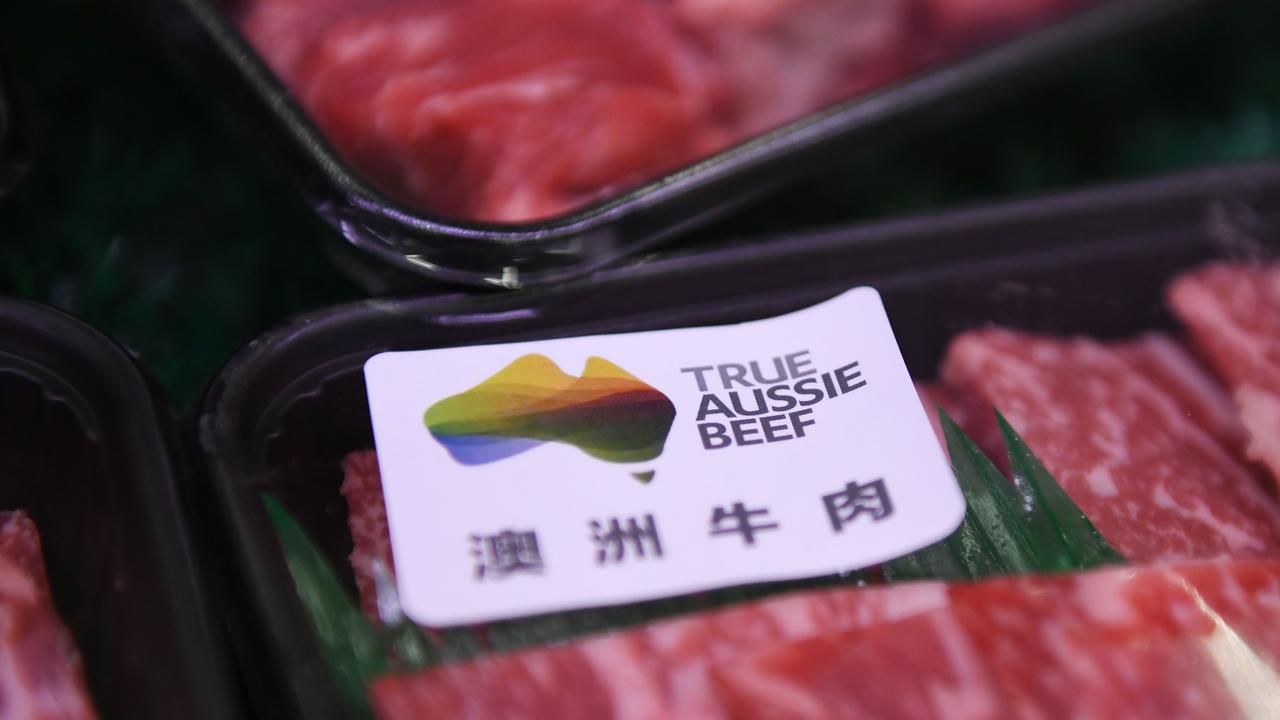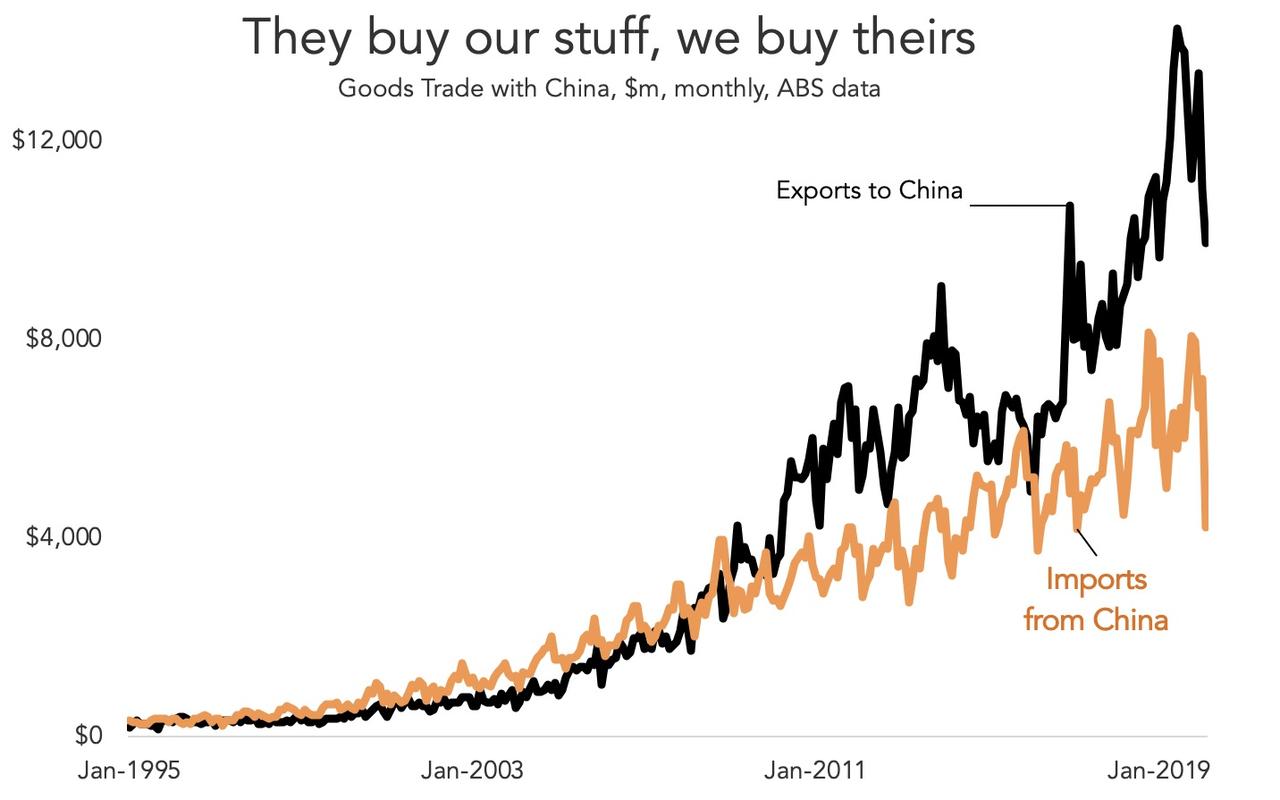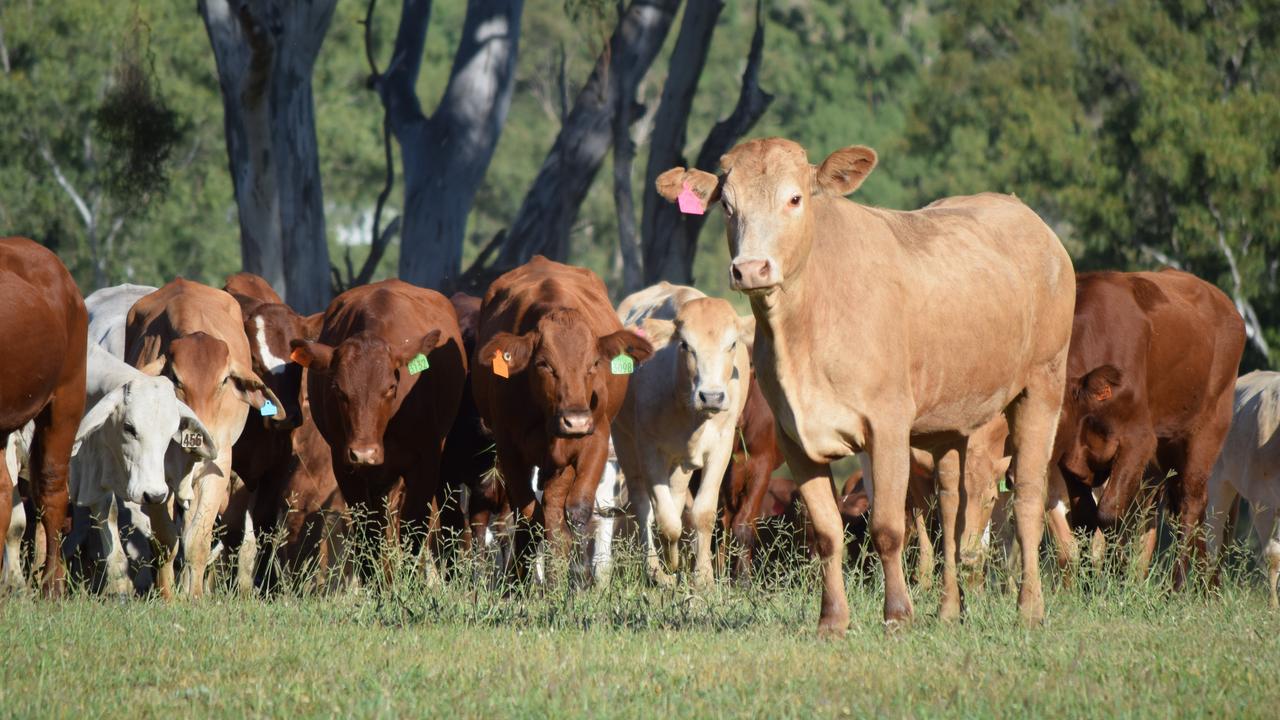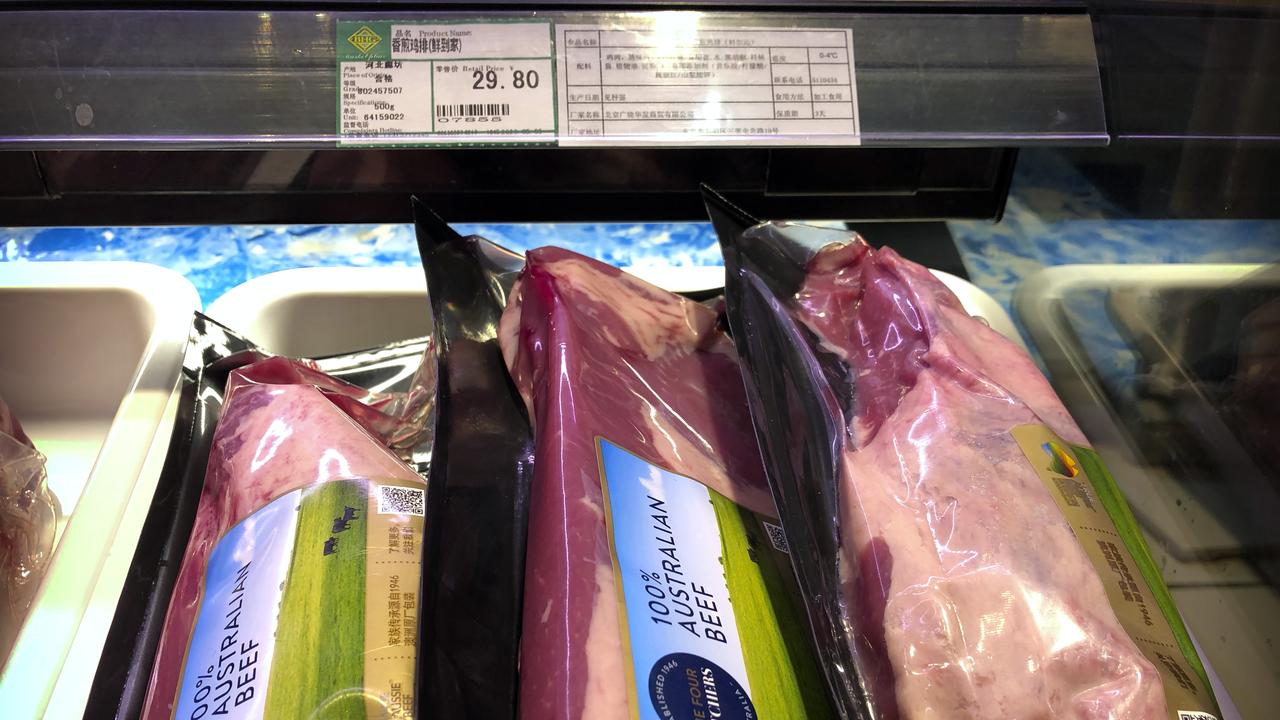Australia’s beef with China: Can we afford to retaliate?
Australia has taken a risk in its criticism of China - but there’s a hidden threat with far greater consequences than a beef or barley boycott.
The beef brawl with China now has a barley barney on top.
First China stopped buying red meat from four of our best abattoirs. Now it is threatening to whack a tariff on our grain exports.
What can we do? Can we afford to retaliate? Let’s look at the numbers.
When it comes to trade, China is our best friend, our number one, our bae. But we find ourselves in an unequal relationship. Australia is not China’s number one. It’s kind of awkward, actually.

We’re only their fifth best friend for imports, behind Korea, Japan, Germany and the USA.
And we are their 12th best friend when it comes to exports. Eleven countries buy more stuff from China than we do.
The trade relationship with China has blossomed very quickly, as the next graph shows.
Fifteen years ago, our trade with China was small, now we swap tens of billions of dollars worth of goods each month.

A lot of Aussies, directly or indirectly, owe their job, house and car to China’s voracious appetite for our exports. But is China as dependent on us?
THE BIG KID IN THE SCHOOLYARD
Australia can at any time decide to cut off the relationship, but it simply would not matter as much to China as it would to us. This is a natural result of a basic fact – they are a very big country.
China has 1.4 billion people. That is 56 times bigger than us. They are the size of 56 Australias. When you take size and add money, as China did in the last two decades, you get heft. China is the number one trade partner for many countries, not just us.
China is powerful. We can’t change that fact - we need to decide how to deal with it. This is new territory for us. We were trade buddies with the UK for a very long time. Then for a while we traded with Japan and the USA. Never before have we had a major trade relationship with a country who was not also a major ally.
“This is the first time in our history that our dominant trading partner is not also our dominant security partner,” said then Prime Minister Malcolm Turnbull in 2018.
“We must see this as an opportunity not as a risk.”


BUDDY UP
That sounds like normal politician speak. How can this be an opportunity? Let’s have another look at the top five trade partners for China. The USA, Germany, Korea, Japan. That’s a list of allies. Our allies.
Australia has stuck its neck out on the coronavirus investigation. The Prime Minister himself made some pretty bold comments about sending in World Health Organisation (WHO) staff with the powers of weapons inspectors. That was a bit dumb.
It’s not that a powerful WHO is a bad idea. It’s just going it alone on these ideas allows China to pick us off one by one. The west – the free world – needs to act as a unified group. We should stick with our allies.
The EU is taking a petition to the World Health Assembly – the decision-making body of the WHO. It would be smarter to raise pressure on China by backing that.
China will soon be the biggest economy in the world, and it is the biggest trading country in the world. That’s a key observation, because trade is how they got rich.
By first making our clothes, and our plastic toys, and now our phones and computers, China went from a poor country to a moderately rich one. Keeping that wealth going depends on trade. Not trade with Australia alone, but trade with the whole world.
The opportunity that Malcolm Turnbull spoke of is the chance to use global pressure on China. Getting into a fight with them all by ourselves is a guaranteed way to lose.
Jason Murphy is an economist. He is the author of the new book Incentivology. Continue the conversation @jasemurphy




